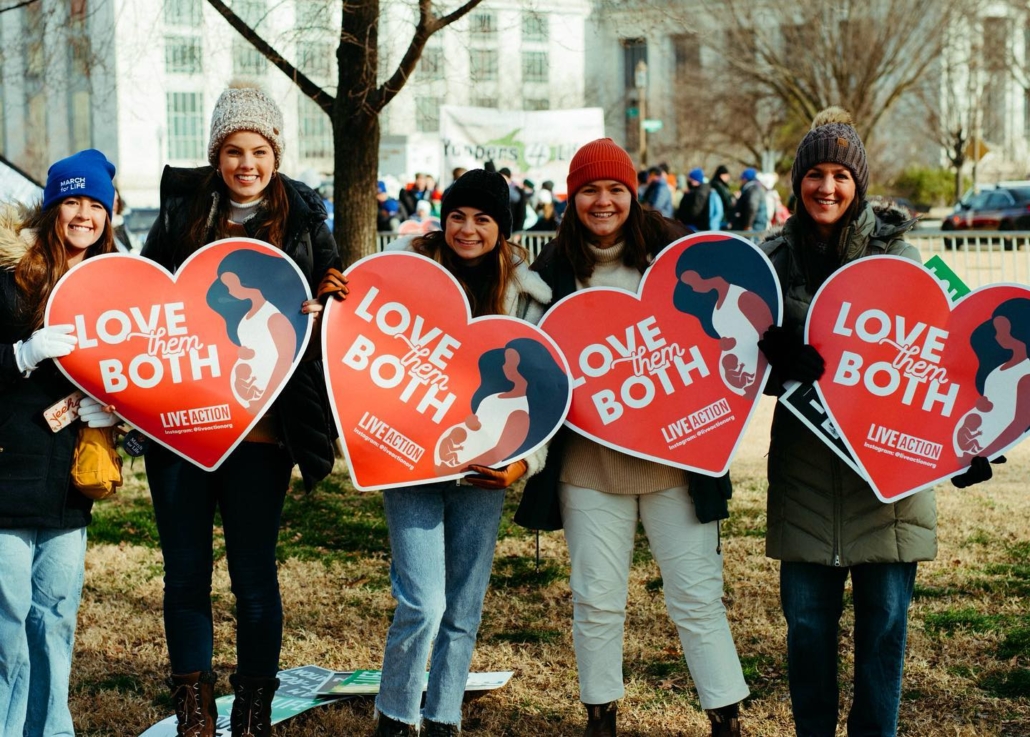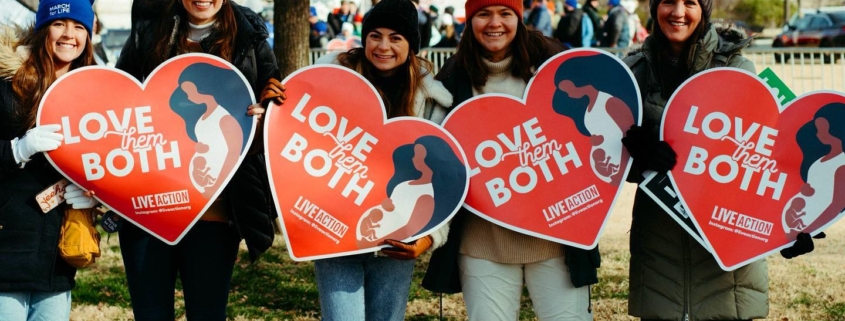Responding to the “Pro-Birth” Accusation

One of the most common outside (and even inside) criticisms of the pro-life movement is that it lacks concern for born life. The late comedian George Carlin expressed the common iteration of this view in a standup: “Pro-life conservatives are obsessed with the fetus from conception to nine months. After that, they don’t want to know about you. They don’t want to hear from you. No nothing. No neonatal care, no day care, no head start, no school lunch, no food stamps, no welfare, no nothing. If you’re preborn, you’re fine; if you’re preschool, you’re f*cked.”
Pro-choicers accuse the pro-life movement of hypocrisy and bad faith. If pro-lifers really cared about life, they argue, they would support more services for low-income mothers. Instead, their actual goal is to control women’s bodies.
People on both sides have likely heard this argument, and many pro-choice people (perhaps even most) believe it themselves. But I would like to point out a rarely acknowledged fact: Pro-choicers often do not support — and sometimes even attack — pro-life efforts to offer resources for women and children.
One example is the Texas Alternatives to Abortion (A2A) program, which started in 2004 and has recieved additional funding each year. The A2A provides funds to maternity homes, adoption centers, and pregnancy care centers (PCCs) across the state. Pro-choice people have raised the alarm about funds going to pregnancy care centers (PCCs), as they characterize PCCs as manipulative and deceitful.
The main beneficiary of the A2A program is the Texas Pregnancy Care Network (TPCN), which subcontracts with other programs that provide resources to pregnant women. The TPCN received Seal of Excellence from the Maryland-based Standards for Excellence Institute, which recognizes charities with high ethics and accountability standards. TPCN works with state programs such as WIC, Medicaid, and Nurse-Family Partnership (a service where nurses visit mothers from pregnancy to the child’s second birthday to ensure healthy prenatal and neonatal care). According to the 2020 A2A Fiscal Report, 85% of TPCN clients successfully enrolled in Medicaid.
Contra Carlin, pro-lifers do refer women to welfare services and provide additional resources to help them raise their children. More examples include the Catholic Mater Filius, an organization that offers housing, medical support, and parenting support to pregnant women and women with children under age five. A similar organization is the California-based Precious Life shelter, created from a pregnancy care center that provides shelter to pregnant homeless women. The Care Net pregnancy center delivered baby supplies to families in Waco during the middle of the Covid-19 pandemic lockdowns in 2020.
But the A2A in particular has recieved the ire of pro-choice groups in Texas, which have sought to decrease funding for it or defund it entirely.
Perhaps pro-choice groups deserve benefit of the doubt here. They believe the A2A funds could be better spent elsewhere. They distrust PCCs, and do not want them receiving taxpayer money.
However, even after taking PCCs out of the equation, pro-choice groups have at best a lack of interest in the initiatives taken by pro-lifers to support pregnant women.
One example is Utah’s House Bill 113, which requires fathers to pay half of a mother’s pregnancy-related medical costs and health insurance premiums during pregnancy. This bill did not have any provisions related to PCCs or abortion. However, Utah’s Planned Parenthood refused to support the law, saying: “While we appreciate that this bill highlights how expensive it is to be pregnant and that many women struggle to cover the costs of their health care, we feel there are better ways to support pregnant people and families.”
Even if this is true, supporting increased prenatal support from fathers does not preclude other programs to help pregnant women. It’s puzzling for pro-choice groups to reject the bill on this basis.
Another example is the Care for Her Act, introduced by Jeff Fortenberry, a Republican Congressman from Nebraska, and co-sponsored by nine other House Republicans. The Care for Her Act does not take a position on the abortion debate, but rather provides increased support to pregnant women. The bill’s provisions include making unborn children eligible for the child tax credit, making pregnant women aware of federal and state assistance programs, and providing grants for job training, maternal housing, and educational opportunities.
While the bill certainly seems to have bipartisan aims, no House Democrats have co-sponsored. Organizations like Planned Parenthood and NARAL have not voiced any support. Pro-choice groups and individuals are quick to charge hypocrisy when pro-lifers do not back increased resources for mothers, but fail to get behind efforts to help women when they are led by pro-lifers.
The pro-choice community often says “We’re not pro-abortion, we’re pro-choice.” Pro-choicers argue that they equally support a woman’s choice to give birth or get an abortion. Because they often accuse pro-lifers of not living up to the pro-life label, perhaps we should challenge them to live up to the “pro-choice” label. Objecting to increased resources for pregnant women simply because they are supported by pro-life people or have the aim to lower the number of abortions is not “pro-choice.”
[Today’s guest article is by Candace Stewart. Photo credit: Live Action.]




Leave a Reply
Want to join the discussion?Feel free to contribute!